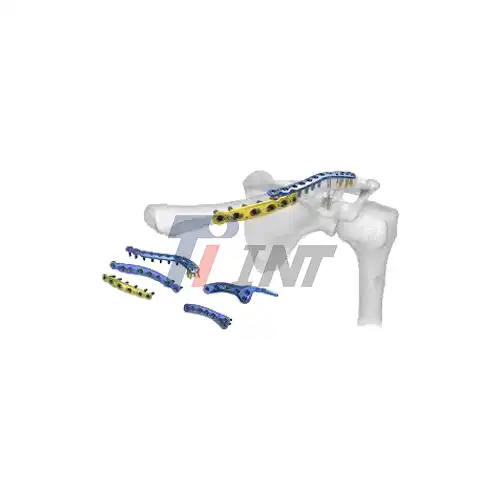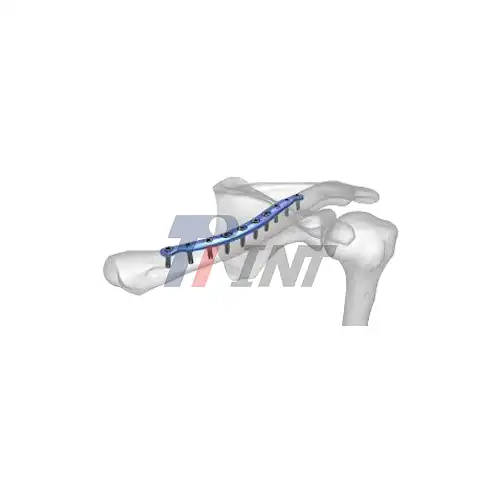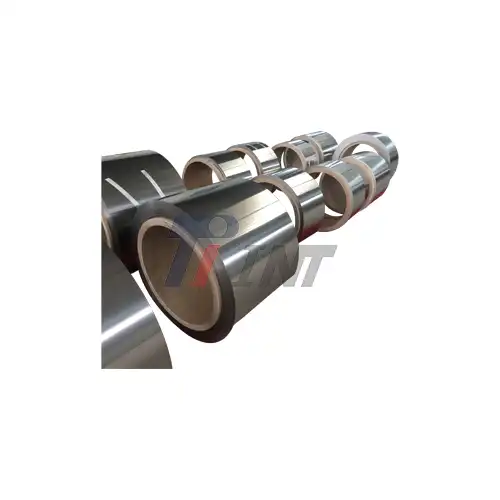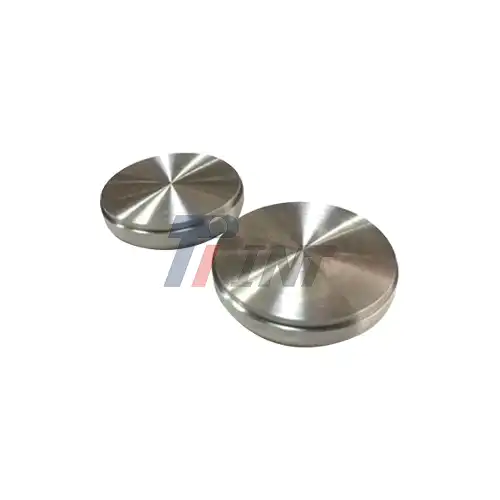The Remarkable Properties of Titanium in Orthopedic Applications
Titanium has emerged as a game-changer in the medical field, particularly in orthopedic surgery. Its unique properties make it an ideal material for bone fracture fixation. Let's explore what makes titanium so exceptional:
- Biocompatibility: Titanium is famous for its extraordinary biocompatibility. This implies that the human body promptly acknowledges titanium inserts without activating antagonistic responses or dismissal. The material's capacity to coordinated consistently with living tissue makes it an ideal choice for long-term implantation.
- Corrosion Resistance: Unlike some other metals, titanium exhibits remarkable resistance to corrosion when exposed to bodily fluids. This characteristic ensures the longevity of the implant and reduces the risk of complications associated with metal degradation.
- Strength-to-Weight Ratio: Titanium boasts an impressive strength-to-weight ratio, making it both robust and lightweight. This property allows titanium plates to provide excellent support for fractured bones without adding unnecessary bulk or weight to the affected area.
- Osseointegration: One of the most fascinating aspects of titanium is its ability to promote osseointegration. This process involves the direct structural and functional connection between living bone tissue and the surface of the implant. Osseointegration enhances the stability of the titanium plate and facilitates faster healing.
- Non-Magnetic: Titanium's non-magnetic nature is especially useful in therapeutic settings. Patients with titanium inserts can securely experience attractive reverberation imaging (MRI) checks without concern for impedances or uprooting of the embed.
- Durability: Titanium plates are built to last. Their durability ensures that they can withstand the stresses and strains of daily activities, providing long-term support to the healing bone.
These remarkable properties contribute to the efficacy of titanium plate for bone fracture, making them a preferred choice among orthopedic surgeons worldwide.
The Healing Journey: Timeline and Expectations
Understanding the recuperating period and timeline when utilizing a titanium plate for bone fracture is vital for patients and healthcare suppliers alike. Whereas person encounters may shift, here's a common diagram of what to anticipate amid the mending travel:
Immediate Post-Surgery (0-2 weeks):
- Pain management and rest are prioritized
- Swelling and discomfort are common
- Limited movement of the affected area
- Regular follow-ups with the surgeon
Early Healing Phase (2-6 weeks):
- Gradual reduction in pain and swelling
- Initiation of gentle physical therapy exercises
- Increased mobility, but still restricted activities
- X-rays to monitor bone healing progress
Progressive Healing (6-12 weeks):
- Significant improvement in pain levels
- Increased range of motion
- More intensive physical therapy
- Gradual return to light daily activities
Advanced Healing (3-6 months):
- Continued improvement in strength and flexibility
- Resumption of most normal activities
- Ongoing physical therapy for optimal recovery
- Regular check-ups to ensure proper healing
Long-Term Recovery (6 months and beyond):
- Full bone healing in most cases
- Return to pre-injury activity levels for many patients
- Continued strengthening exercises
- Periodic follow-ups to monitor long-term outcomes
It's critical to note that the recuperating timeline can shift altogether based on variables such as the seriousness of the break, the patient's general well-being, age, and adherence to post-operative care information. A few patients may be involved in quicker recuperating, whereas others might require extra time to recoup completely. The utilization of titanium plates regularly quickens the mending handle compared to conventional strategies. The soundness given by the plate permits prior mobilization, which can advance speedier recuperation and decrease the hazard of complications related to drawn-out immobilization.
Maximizing the Benefits: Tips for Optimal Recovery
To ensure the best possible outcome when using a titanium plate for bone fracture, patients should follow these guidelines:
- Adhere to Medical Advice: Follow your surgeon's instructions meticulously. This includes taking prescribed medications, attending follow-up appointments, and adhering to activity restrictions.
- Nutrition for Healing: Consume a balanced diet rich in calcium, vitamin D, and protein to support bone healing. Consider consulting a nutritionist for personalized advice.
- Gradual Return to Activity: Be patient with your recovery. Gradually increase your activity levels as advised by your healthcare team to avoid overexertion and potential setbacks.
- Physical Therapy Commitment: Engage fully in your prescribed physical therapy regimen. Consistent effort in rehabilitation exercises can significantly improve your outcomes.
- Smoking Cessation: If you smoke, consider quitting. Smoking can impede bone healing and increase the risk of complications.
- Stay Hydrated: Proper hydration supports overall health and can aid in the healing process.
- Mental Health Support: Recovery can be challenging both physically and emotionally. Don't hesitate to seek mental health support if needed during your healing journey.
- Monitor for Complications: Be vigilant for signs of infection or other complications, such as unusual pain, swelling, or fever. Report any concerns to your healthcare provider promptly.
By taking after these rules and working closely with your healthcare group, you can maximize the benefits of your titanium plate and accomplish ideal recuperation from your bone break.
Conclusion
The use of titanium plate for bone fracture represents a significant advancement in orthopedic care. Their unique properties, combined with proper medical care and patient commitment, can lead to remarkable outcomes. As technology continues to evolve, we can expect even more innovative applications of titanium in the field of orthopedics, further improving patient care and quality of life.
For those interested in learning more about medical titanium products, including titanium plates for bone fractures, Baoji INT Medical Titanium Co., Ltd. offers a wealth of expertise and high-quality solutions. With over 30 years of experience in the research, development, and production of titanium materials, INT provides cutting-edge technology and a deep understanding of the titanium market trends. Their commitment to quality is evident through their ISO9001:2015, ISO13485:2016, and EU CE safety certifications.
To explore INT's range of medical titanium products or to discuss your specific needs, don't hesitate to reach out to their team of experts at export@tiint.com. Their comprehensive range of titanium materials and customized solutions can cater to various medical applications, ensuring you receive the highest quality products for your orthopedic needs.


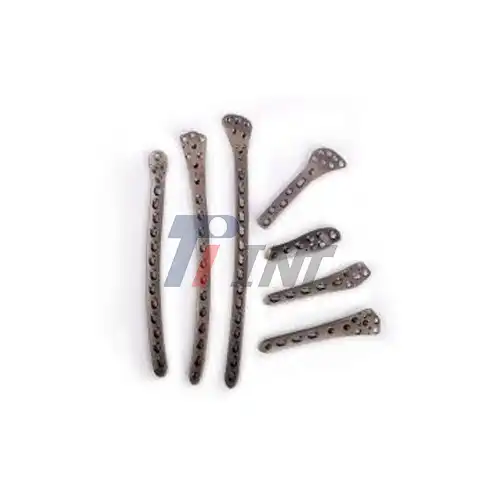
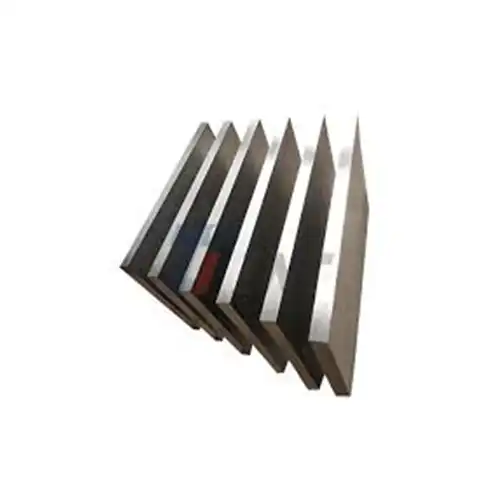






 2025-07-18 13:22:34
2025-07-18 13:22:34


_1752462435099.webp)
_1752462199458.webp)
_1751959047184.webp)
_1750668405487.webp)
